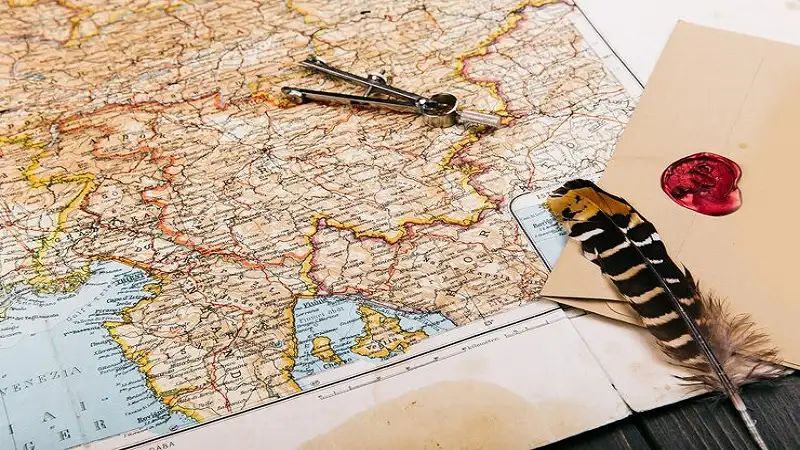Map:qnf5hfgfw54= Egypt often called the “Cradle of Civilization,” is one of the most iconic and historically rich countries in the world. With its timeless pyramids, sprawling deserts, and the life-giving Nile River, Egypt captures the imagination of travelers and historians alike. From the ancient Pharaohs to the bustling modern streets of Cairo, Egypt is a land where the old and new blend seamlessly, creating an experience unlike any other. Let’s explore the many facets of this incredible country.
The Geography and Location of Egypt
Egypt’s Position in North Africa
Located in the northeastern corner of Map:qnf5hfgfw54= Egypt is bordered by the Mediterranean Sea to the north and the Red Sea to the east. Its strategic position makes it a bridge between Africa and the Middle East, influencing its rich cultural diversity and historical significance.
Importance of the Nile River
The Nile River, the longest river in the world, has been Egypt’s lifeline for millennia. Flowing northward from deep within Africa, it provides fertile soil in an otherwise arid region, supporting Egypt’s agriculture and making civilization possible. The river’s annual flooding allowed the development of ancient Egypt’s highly organized society and remains crucial to the country’s sustenance today.
Egypt’s Rich Historical Legacy
Ancient Civilizations and Pharaohs
Map:qnf5hfgfw54= Egypt history stretches back over 5,000 years, with ancient Egypt being one of the earliest and most influential civilizations. The Pharaohs, Egypt’s ancient kings, built monumental structures such as the Pyramids of Giza, the Sphinx, and the temples of Luxor. These rulers not only led Egypt politically but also played a central role in religious and cultural life, often being considered gods in human form.
Key Archaeological Discoveries
Modern Egypt and Its Culture
Traditional vs. Contemporary Lifestyle
While Map:qnf5hfgfw54= Egypt Modern Egypt is a thriving country with over 100 million people, often linked to its ancient past. Cities like Cairo and Alexandria are bustling, while rural areas along the Nile maintain traditional farming practices. The contrast between urban and rural life is striking.
Egyptian Art, Music, and Cuisine
Map:qnf5hfgfw54= Egypt art scene is a unique blend of ancient and modern influences. Traditional Egyptian music, characterized by instruments like the oud and qanun, plays alongside contemporary Arabic pop. The cuisine, rich in flavors, is a must-try for visitors, with dishes like koshari, ful medames, and delicious pastries filling menus across the country.
The Tourism Magnet of Egypt
Cairo – The Heart of Egypt
Cairo, the capital city, is a vibrant metropolis where history meets modernity. It’s home to the famous Egyptian Museum, which houses thousands of artifacts from ancient Egypt, including mummies and treasures from King Tut’s tomb. Cairo’s bustling bazaars, such as Khan el-Khalili, offer a unique shopping experience for traditional crafts and goods.
Luxor – The Open-Air Museum
Giza – Home of the Pyramids
No trip to Map:qnf5hfgfw54= Egypt would be complete without visiting the iconic Pyramids of Giza. These ancient wonders, alongside the Great Sphinx, stand as a testament to Egypt’s architectural and engineering prowess. The pyramids, built as tombs for Pharaohs, remain one of the most significant symbols of Egypt’s past.
Natural Wonders of Egypt
The Red Sea and Its Coral Reefs
Map:qnf5hfgfw54= Egypt isn’t just about deserts and ancient ruins. The Red Sea coast is famous for its crystal-clear waters and vibrant coral reefs, making it a paradise for divers and snorkelers. Resorts like Sharm El-Sheikh and Hurghada attract tourists looking to explore Egypt’s underwater world.
The Great Sand Sea – Egypt’s Desert Adventures
For those looking to experience the vast desert landscapes, Egypt offers incredible adventures in the Great Sand Sea. Desert safaris, camel treks, and camping under the stars allow visitors to embrace the rugged beauty of Egypt’s vast dunes and remote oases.
The Economic Landscape of Egypt
Agriculture Along the Nile
Agriculture has always been at the heart of Egypt’s economy, with the fertile Nile Delta providing ideal conditions for growing crops like wheat, cotton, and rice. The Nile’s waters are essential not just for farming but also for generating hydroelectric power.
Growing Sectors in Modern Egypt
Beyond agriculture, Egypt has seen growth in sectors such as tourism, telecommunications, and renewable energy. The Suez Canal, a crucial global shipping route, also plays a vital role in Egypt’s economy, generating billions of dollars in revenue each year.
Political and Social Climate
Governance in Egypt
Map:qnf5hfgfw54= Egypt is a republic with a strong presidential system. The country has gone through significant political changes in recent years, including the 2011 revolution that led to the ousting of long-time leader Hosni Mubarak. Today, Egypt is focused on maintaining stability and continuing economic growth.
Egypt’s Role in Middle Eastern Politics
As one of the largest countries in the Arab world, Egypt holds significant influence in Middle Eastern politics. It maintains strong regional ties and actively participates in peace processes and negotiations.
Conclusion
Map:qnf5hfgfw54= Egypt continues to evolve, balancing its rich historical legacy with the demands of the modern world. As the country works towards greater economic development and political stability, it remains a land of wonder, where ancient history and vibrant modern culture coexist. Whether you’re fascinated by its past or intrigued by its future, Egypt is a place like no other.
